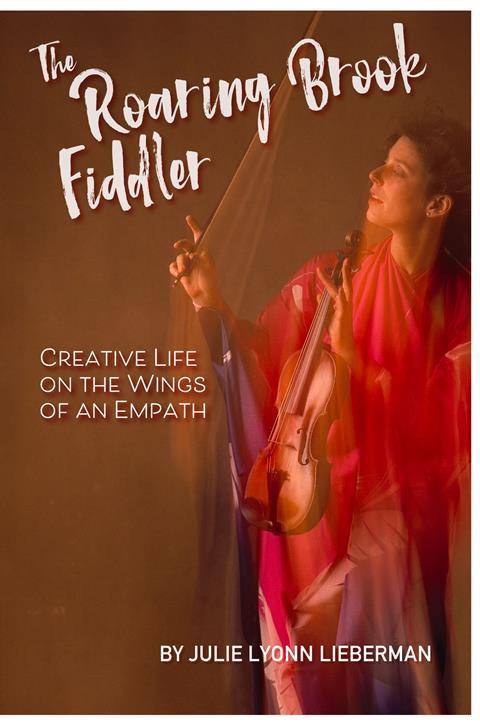Anne Inglis reviews the memoir of US violinist and tutor Julie Lyonn Lieberman

The Roaring Brook Fiddler: Creative Life on the Wings of an Empath
Julie Lyonn Lieberman
330PP ISBN 9781098335496
BookBaby $21.95
US violinist and educator Julie Lyonn Lieberman is a force of nature, exemplified by this latest publication. Not a book of music, this time, but a memoir of her creative life with its twists and turns, highs and lows, and candid self-awareness. She writes with her heart on her sleeve, and the resulting publication is a fulfilment of a promise to her mother as she lay dying.
There is something compelling about being allowed into Lieberman’s life and mind in this openly emotional and exploratory life story. For a UK reader it can be quite an uncomfortable read at times, and to be fair probably couldn’t have been written by anyone on this side of the pond as, even in this more touchy-feely age, we are more buttoned-up and generally more private about our responses than our American cousins. That is not a criticism but an observation that we react differently to internal turmoil and analysis.
But it isn’t quite as easy to typecast the book in this way, and Lieberman herself has had to conquer anxiety and fear of disclosure to convey her inner world in a lasting document. She has combined her own story with an unfinished memoir written by her mother to become a seamless whole. It is a fascinating tale of life and its obstacles, and also of the apparently unexplainable. And this is where the ‘empath’ comes in.
Time and time again, there appear to be links to a spiritual world which are described as ‘whiskers’, and these receptors connect with people who have ‘crossed over’. They can also be prescient of disaster and it is the climax of the book with a true story told about the dreadful school massacre at Sandy Hook, and the reaction of the author and her dog that leaves her ‘saturated with pain and empathy’.
The book recounts a series of experiences, family relationships and challenges. It doesn’t flinch. And it is also a compelling reflection of a musician’s other life that the audience doesn’t know about – how, despite internal challenges, the show needs to go on not only to put food on the table, but also to allow a career and artistic life to progress.
ANNE INGLIS











































No comments yet